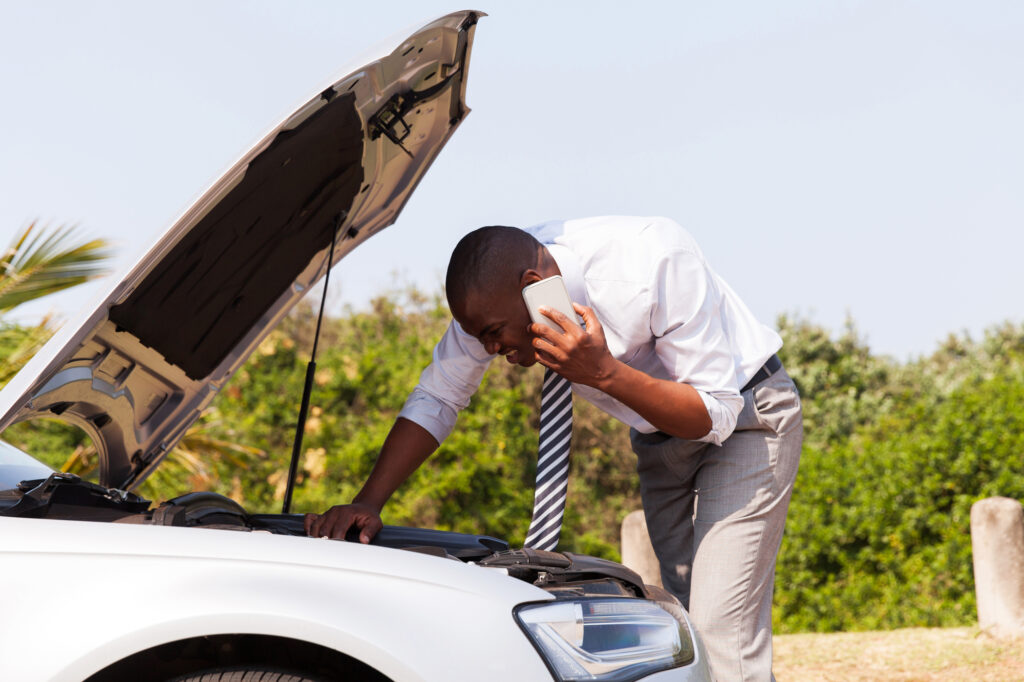Having problems starting your car? Look out for the following problems.
1. Faulty or dead battery
More often than not, a dead or faulty battery is the culprit. On normal operation, the battery receives power from the alternator. This means that if anything goes wrong with the alternator, your battery will not be sufficiently charged, in which case it would be practically impossible to start your car or use any electrical components powered by the battery. How do you know your battery is dead? Check your battery light. Electrical components like your radio and lights will also not work. To verify if your battery is dead, try a jump start. If this is successful, your battery is most likely responsible or there’s some problem recharging it from the alternator. To get around the problem, have an expert mechanic inspect your car, check connections and replace the battery or alternator if need be.
2. Bad Ignition switch
Your car’s ignition switch activates battery activity, and ultimately allows you to start the engine. Because it is a frequently used electrical component, the ignition switch may overheat on normal use, in which case you might experience problems starting your car. Suspect the ignition system if you are unable to power on accessories or your car keeps stalling when starting or driving. Whether the fault is in the ignition system or elsewhere, starting problems are a headache. Your best course of action would be to have an expert mechanic inspect your car as soon as possible.

3. Damaged Starter
A damaged or faulty starter is another reason a car won’t start. Connected to your battery, the starter is an electric component that activates the engine when you turn on the ignition switch. As soon as the engine starts working, the starter has completed its job. Thus any problems with the starter can make cranking the engine difficult when you turn on the ignition system. A clicking noise is a tell-tale sign of a bad starter. Also, if your starter fails to spin the motor after engaging or you notice an unusual grounding noise, smoke or smell when starting the motor, have your starter inspected. Starters have no replacement schedule, so it’s difficult to avoid this problem at some point. Once you detect problems with the system, an expert mechanic will carry out a thorough inspection service and provide the right repair service.
4. Faulty ignition coil
The ignition system in your car contains coils that convert battery voltage into an electric spark in the engine. If the coils are faulty or damaged, this will affect engine performance and make it difficult to start your car. If you regularly experience loss of power, rough idle, poor engine function, or the Check Engine Light turns on, there’s a good chance your ignition system is faulty. Have a mechanic inspect the ignition system and get the coils replaced if they are damaged.
5. Bad Timing belt
Though not all engines are equipped with one, timing belts are a crucial component for normal engine performance in cars and SUVs. This belt controls the opening and closing of the valves in the engine in order to avoid contact with the pistons. Running a faulty or damaged timing belt increases the risk of exposing your engine to a lot of damage that could necessitate engine replacement. If your engine misfires, produces unusual ticking noise, or you spot oil leaks in the motor anterior, a damaged timing belt might be responsible. Since timing belt issues can be difficult to detect early on until substantial damage has been done, it is important to keep track of – and adhere strictly – to replacement guidelines by your manufacturer.
6. Clogged fuel filter
Your car needs sufficient fuel to keep going. So if the fuel filter is clogged for some reason, not enough fuel will reach the engine, making it difficult to use your car efficiently. As a guideline, most fuel filters are due for replacement every 15,000 – 20,000 kilometres. A clogged fuel filter reduces acceleration power and should trigger on the Check Engine Light. Thankfully, changing bad fuel filters is not an expensive service. If you have covered the recommended distance or suspect problems with the fuel filter, have a mechanic inspect your car and carry out a replacement service if necessary.

7. Gas tank is empty
You probably forgot to refill or intentionally emptied your gas reserve. Whatever the reason, an empty gas tank will obviously stop your car from starting. The solution is obvious, pull up to a station for a refill.
8. Faulty or Damaged Fuel Pump
While fuel pumps are designed to last, they may need to be replaced after an extended period of use. Expect an early need for replacement if you habitually run your fuel tank empty. Since it plays the vital role of delivering fuel to your engine, a bad fuel pump will cause a reduction in pressure. This will in turn affect engine performance and ultimately render your car inoperable. If you are unable to start your car, experience unexpected loss of power, poor fuel economy, or notice jerks when moving at speed, it’s time to inspect your fuel delivery line. An expert mechanic will zero in on the cause of the problem and replace the fuel pump if necessary.
9. Alternator
Your car’s electrical systems are powered by the combined activity of the battery and alternator. When you are in motion, your battery supplies the electrical need of your car, and the alternator replenishes battery power to ensure all systems run as they should. The alternator needs to be in optimal working condition, or you risk not being able to use your car or even get it started. If you notice dimmer lights, the battery warning light turns on or you frequently have to jumpstart your car, a bad alternator might be the culprit. Book an inspection service with an expert mechanic if you notice one or more of these warning signs.
10. Bad Spark plug
Spark plugs are a service component liable to damage over the course of normal use. When bad, spark plugs lose the ability to ignite compressed fuel mixture, and thus render the engine inoperable. Misfiring engine, reduced fuel economy and poor acceleration may indicate a damaged spark plug. Leaving spark plug issues unattended could shorten the lifespan of your engine, so it is important to promptly inspect and replace this component when problems are detected.
11. Corroded battery
It is possible for battery corrosion to occur. When this happens, you might notice a drop in performance or experience trouble starting your car. Make sure to clean your battery regularly or hire the services of a mechanic to restore normal battery function.
12. Damaged distribution cap
Moisture can ruin the distribution cap – a service component that routes voltage from the ignition coil to your engine’s spark plugs. A bad distribution cap can also cause starting problems, indicated by unusual engine sounds, the Check Engine Light or a misfiring engine. Wipe off moisture and reinstall properly, if the problem persists, hire a mechanic to inspect your car’s ignition system and replace the damaged cap if necessary.
13. Security System Problems
Keys are built to work with only the cars they were designed for, thus providing an extra layer of security. Any shift in key configuration could make it impossible to start your car. If you suspect this is the problem, try your spare key instead.
